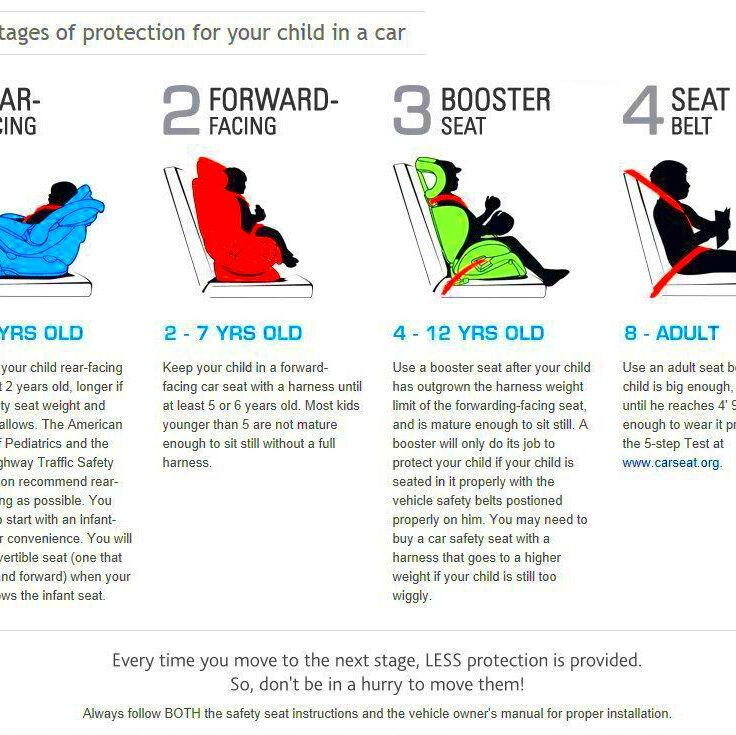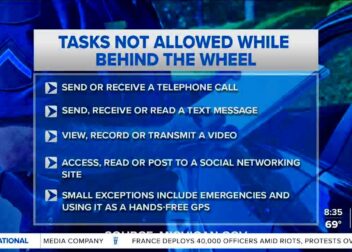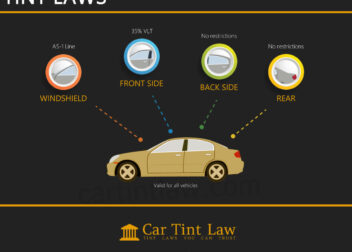Louisiana’s Car Seat Regulation Laws Explained
When it comes to keeping our little ones safe, understanding car seat regulations in Louisiana is crucial. These laws are designed to protect children while traveling in vehicles. Knowing what these regulations entail can help ensure that your child is securely strapped in, reducing the risk of injury during accidents. Let’s dive into why these rules are important and what you need to know to comply with them.
Importance of Car Seat Regulations for Child Safety
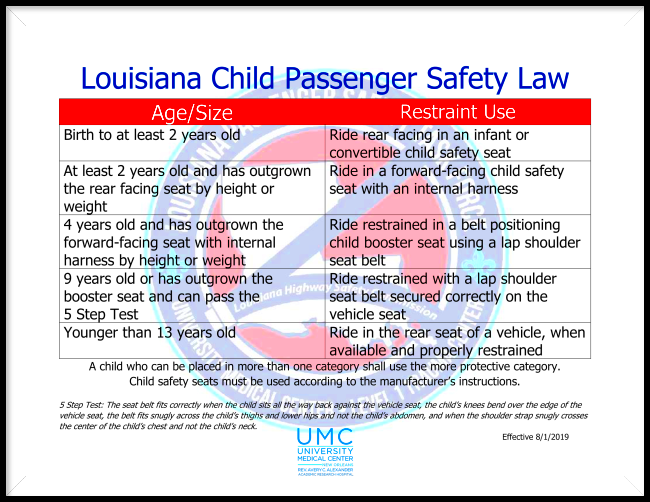
Car seat regulations play a vital role in safeguarding our children on the road. Here’s why they matter:
- Reduces Risk of Injury: Properly installed car seats can significantly decrease the chances of injury in case of a crash.
- Legal Protection: Following these laws can protect you from legal repercussions and fines.
- Promotes Awareness: Understanding the regulations encourages parents to take child safety seriously.
- Sets Standards: Regulations provide clear guidelines for parents, ensuring everyone knows how to keep their kids safe.
In essence, these regulations not only protect children but also educate parents on best practices for travel safety.
Overview of Louisiana Car Seat Laws
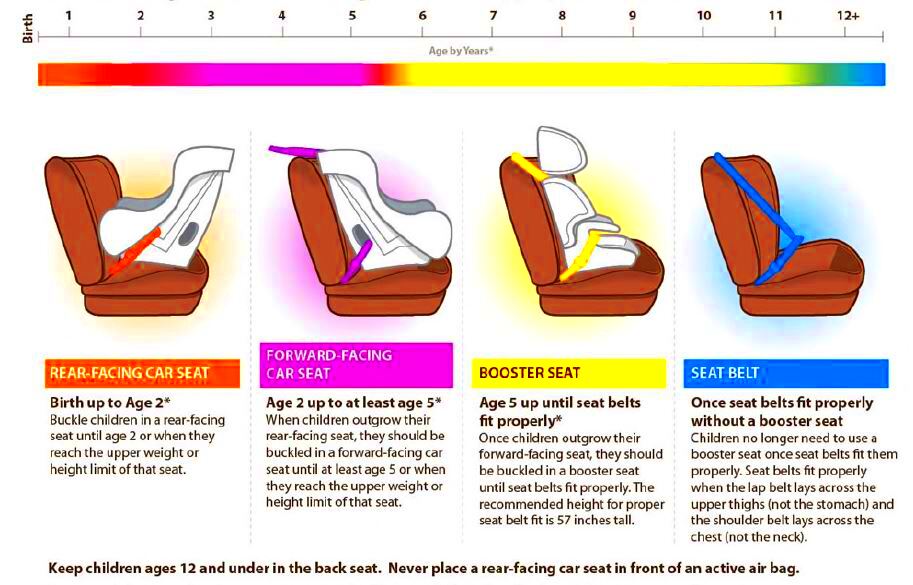
Louisiana has specific car seat laws designed to ensure children are properly restrained while traveling. Here’s a breakdown of the key points:
| Age | Type of Car Seat | Requirements |
|---|---|---|
| Birth to 1 year | Rear-Facing Car Seat | Must be in a rear-facing position until the child is at least 1 year old and 20 pounds. |
| 1 to 4 years | Forward-Facing Car Seat | Children must be in a forward-facing seat with a harness until they reach the maximum weight limit. |
| 4 to 9 years | Booster Seat | Must use a booster seat until they are 4 feet 9 inches tall. |
| 9 years and older | Seat Belt | Children can use a regular seat belt once they are tall enough to fit properly. |
Understanding these laws helps ensure your child’s safety on the road and keeps you compliant with state regulations. Always remember that the type of car seat used should match your child’s age, weight, and height for maximum protection.
Age and Weight Requirements for Car Seats
Understanding the age and weight requirements for car seats is crucial for keeping your child safe while traveling. In Louisiana, these regulations are straightforward and designed to ensure that your little ones are adequately protected in the event of an accident. Here’s a closer look at the specific requirements:
| Age Group | Weight Range | Car Seat Type |
|---|---|---|
| Birth to 1 year | Up to 20 pounds | Rear-Facing Car Seat |
| 1 to 4 years | 20 to 40 pounds | Forward-Facing Car Seat with Harness |
| 4 to 9 years | 40 to 80 pounds | Booster Seat |
| 9 years and older | Over 80 pounds | Seat Belt |
It’s important to note that these requirements are based on the child’s size and not just their age. Always check the manufacturer’s guidelines for your specific car seat, as different brands may have varying limits. Following these guidelines helps ensure that your child is as safe as possible during car rides.
Types of Car Seats Permitted Under Louisiana Law
In Louisiana, various types of car seats are permitted, each designed for specific stages of your child’s development. Knowing the right type to use at the right time is essential for safety. Here’s a breakdown of the main types of car seats:
- Rear-Facing Car Seats: Ideal for infants and toddlers, these seats should be used until your child is at least 1 year old and 20 pounds.
- Forward-Facing Car Seats: These are for children who outgrow rear-facing seats. They are typically used from ages 1 to 4, with a harness to secure the child.
- Booster Seats: Designed for children aged 4 to 9 years, booster seats lift the child so that the seat belt fits properly across their body.
- Seat Belts: Once children reach 9 years old or 4 feet 9 inches tall, they can safely use seat belts without a booster.
Always ensure that the car seat is correctly installed and that your child meets the weight and height requirements for each type. Choosing the appropriate car seat type not only adheres to the law but also maximizes safety for your child during travel.
Common Misconceptions About Car Seat Regulations
There are many misconceptions about car seat regulations that can lead to confusion among parents. Let’s clarify some of the most common myths:
- Myth 1: “My child is too big for a car seat.”
Truth: Size can be deceiving. Children should remain in car seats until they meet the age and weight requirements for the next type. - Myth 2: “It’s safe to switch to a booster seat at age 4.”
Truth: Switching to a booster seat depends on the child’s weight and height, not just their age. - Myth 3: “All car seats are the same.”
Truth: Different car seats are designed for different age groups and weights, so it’s essential to use the right one. - Myth 4: “Once my child is in a booster seat, they can use the seat belt.”
Truth: Children should stay in booster seats until they are tall enough for a seat belt to fit properly.
Understanding these common misconceptions is important for ensuring your child’s safety in the car. Always rely on the most current guidelines and recommendations for car seats to keep your little ones safe during travel.
Penalties for Violating Car Seat Laws in Louisiana
Understanding the penalties for violating car seat laws in Louisiana is crucial for every parent. These regulations are not just suggestions; they are legally enforced to protect children. When you fail to comply with these laws, there can be serious consequences. Here’s what you need to know:
- Fines: Failing to use an appropriate car seat can lead to fines ranging from $100 to $500, depending on the violation.
- Points on Your Driving Record: In some cases, violating car seat laws can result in points added to your driving record, which can affect your insurance premiums.
- Increased Risk in Accidents: Not adhering to car seat laws not only leads to fines but also increases the risk of severe injury to your child in an accident.
In Louisiana, law enforcement officers are authorized to stop vehicles and check for proper child safety restraints. It’s essential to be aware of these penalties and make sure you are following the law. Investing in the right car seat and using it properly is worth avoiding the risks and potential fines.
Resources for Parents on Car Seat Safety
As a parent, you want the best for your child, especially when it comes to their safety in the car. Fortunately, there are numerous resources available to help you navigate car seat safety:
- Louisiana Department of Transportation and Development: This website provides up-to-date information on car seat laws and safety guidelines.
- National Highway Traffic Safety Administration (NHTSA): This federal resource offers valuable information on choosing the right car seat, installation tips, and safety statistics.
- Local Health Departments: Many health departments offer car seat safety checks and educational resources to help parents understand proper usage.
- Community Programs: Look for local events or programs that offer car seat inspections or educational workshops to help you stay informed.
Taking advantage of these resources can make a significant difference in ensuring your child’s safety during travel. It’s essential to stay informed and seek help when needed to make sure your car seat is used correctly.
Frequently Asked Questions About Car Seat Regulations
Parents often have questions about car seat regulations, and it’s important to have accurate answers. Here are some of the most frequently asked questions:
- Q: When can I switch my child from a rear-facing car seat to a forward-facing car seat?
A: Children should remain in a rear-facing car seat until they are at least 1 year old and weigh at least 20 pounds. - Q: Is it safe to buy a used car seat?
A: It can be safe if you know its history and it hasn’t been involved in an accident, is not expired, and comes with all its parts. - Q: How do I know if my child is ready for a booster seat?
A: Your child should be at least 4 years old, weigh between 40 and 80 pounds, and be tall enough to sit properly with a seat belt. - Q: What should I do if I get pulled over for a car seat violation?
A: Stay calm, listen to the officer, and remember to comply with the citation. Consider it a reminder to review and improve your car seat practices.
Having the right information can empower you to make safe choices for your child. Always refer to reliable resources for the most current regulations and recommendations regarding car seat safety.
Conclusion on Louisiana’s Car Seat Regulation Laws
In conclusion, understanding and adhering to Louisiana’s car seat regulation laws is essential for ensuring the safety of our children while traveling. These laws are designed to protect young passengers by specifying the appropriate car seat types based on age and weight. By following these guidelines, you can significantly reduce the risk of injury in the event of an accident. Parents should remain informed about the latest regulations and utilize available resources to ensure their child’s car seat is properly installed and used. Remember, keeping our children safe in vehicles is a responsibility we all share, and compliance with these laws not only protects them but also promotes a culture of safety on the roads.
